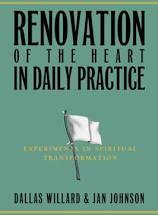Perhaps all this talk about the soul is getting too ethereal for you. Talking to one’s soul? Really? But don’t give up. The Psalms offer another (perhaps simpler) doorway through which we can encounter our soul.
TODAY’S EXPERIMENT - Choose an image from the Psalms below that best describes your soul and the things it wants to cry out. If you can’t decide, choose the one your best friend or spouse would choose for you.
-A panting deer who has been running in search of water for a long time (see 42:1)
-A small creature crouching in the protective shadow of a huge creature (God’s wings) (see 57:1)
-A weary desert traveler (see 63:1) A desert valley with huge dry cracks opening up (see 143:6)
-An ailing patient who stretches out his hands for help yet refuses to be comforted when comfort is offered (see 77:2)
-Someone who has narrowly escaped death (see 116:8)
-A tired mountain climber who has found a solid foothold (see 94:18-19)
-A guard on duty all night long (see 130:6)
-A wild and crazy musician who even talks to her instruments (see 108:1) A gourmet diner (see 63:5)
-A weaned child at his mother’s breast—content and not even looking for food (see 131:2)
Consider the image you’ve chosen. What is the cry of your soul based on that image? What is needed to help your soul rest in God? Think also of someone close to you, perhaps someone you minister to and hope to be a blessing to. Which image fits that person? What is the cry of his or her heart? How might you reach out to that person?

















































